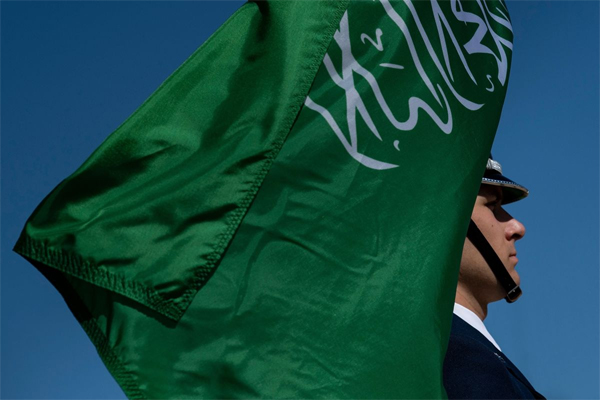
Iain Marlow, Bloomberg
WASHINGTON
EnergiesNet.com 07 11 2022
For more than seven decades, despite stark differences on matters such as human rights and the Arab-Israeli conflict, the US and Saudi Arabia maintained a close alliance based on an exchange of security for oil. During Joe Biden’s 2020 presidential campaign he said he’d end the amity, vowing to make Saudi Arabia a global “pariah” over the 2018 murder of columnist Jamal Khashoggi by Saudi agents inside the country’s consulate in Istanbul. Biden didn’t actually go that far after taking office in 2021, but he did cool relations, notably shunning the de facto Saudi leader, Crown Prince Mohammed bin Salman, and releasing a report blaming him for the killing. Now, with Russia’s war in Ukraine causing oil prices — and thus gasoline costs for US consumers — to spike, Biden is working to repair ties with the world’s largest crude exporter, which in theory could nudge prices down by ramping up production.
1. What’s the history of US-Saudi ties?
In 1945, US President Franklin Roosevelt and Saudi Arabia’s founder King Abdulaziz ibn Saud held a historic meeting aboard the USS Quincy in the Suez Canal. They disagreed vehemently about the future of what was then British Mandatory Palestine, with the American supporting Israel’s establishment in part of it and the king opposed to a Jewish state in the Middle East. They nevertheless laid the groundwork for a strategic arrangement whereby the US provided security guarantees to Saudi rulers in exchange for access to the kingdom’s vast oil reserves. Over the years the US complained, but not loudly, about the constraints on civil rights and the unequal treatment of women and minority Shiite Muslims in the kingdom. Ties occasionally veered off course. In 1973, Saudi Arabia led an Arab oil boycott of the US and other countries that supported Israel in that year’s Arab-Israeli war, contributing to a recession in the West. Still, the relationship endured. It was deepened by Iran’s 1979 Islamic revolution, which overthrew a US-backed monarch in a country that rivals Saudi Arabia for regional dominance, and by Iraq’s 1990 invasion of Kuwait, which borders Saudi Arabia.
2. Why did things sour between the US and Saudi Arabia?
The Sept. 11 attacks on the US, which were masterminded and mostly orchestrated by Saudi nationals, introduced a bitter note in 2001. More than that, a broader, structural change undermined the fundamentals of the relationship in recent years: The shale boom has made America the world’s largest producer of oil and thus less reliant on imports from the Middle East. At the same time, Crown Prince Mohammed has abandoned the kingdom’s usual, cautious foreign policy in favor of an assertiveness that’s made Saudi Arabia a vexing ally for the US. He launched a disruptive blockade of Qatar, which hosts the largest US military base in the region, and a devastating intervention in Yemen’s civil war. US intelligence assessed that he ordered the 2018 operation that ended with the murder of Khashoggi, a Saudi citizen who was a US resident and a Washington Post contributor. The crown prince has denied any involvement in the killing while accepting symbolic responsibility for it as the country’s unofficial ruler. Then-US President Donald Trump embraced Saudi Arabia, making it the first place he visited overseas after taking office in 2017. But relations cooled quickly with Biden in office.
3. What did Biden do?
Early on in his presidency, Biden ended US support for Saudi Arabia’s offensive operations in Yemen, including related weapons transfers. The Saudi bombing campaign, aimed at dislodging Iran-backed Houthi rebels who took over Yemen’s capital and surrounding areas in 2014, has been widely criticized for disproportionately affecting civilians. Biden preserved assistance aimed at helping defend Saudi territory from Houthi attacks. Unlike Trump, who met and spoke directly with Prince Mohammed, Biden shunned him. The White House said it was more appropriate for the president to deal with his counterpart, King Salman bin Abdulaziz, and relegated the crown prince, who is also the defense minister, to liaise with US Secretary of Defense Lloyd Austin. This was seen in the kingdom as insulting to the man who already effectively rules the country and will almost certainly become its next king. In an op-ed on July 9, Biden said his goal has been “to reorient — but not rupture” relations with Saudi Arabia.
4. Why is Biden reversing course with the Saudis now?
Biden is under pressure to lower the cost of gasoline to avoid voters punishing his Democratic Party in congressional and state elections in November. Oil prices were already rising before the war in Ukraine, as consumption, which had slowed during the worst of the pandemic, revived, outstripping the growth in crude supplies. Then the US and its allies hit Russia, the source of 10% of the world’s oil, with a wave of sanctions, reducing its exports and notching prices up further. In theory, US shale producers could pump more oil, but they are riding the brakes instead, having changed their business models to focus on generating profits for investors rather than increasing production. In a symbol of goodwill, Saudi Arabia and the alliance of oil producers it leads agreed in June to pump a little extra.
5. Could the Saudis do more to bring prices down?
Possibly, but not a lot. Saudi Arabia and its neighbor, the United Arab Emirates — effectively the only two producers with significant spare capacity — hold just under 3 million barrels a day of idle output between them, according to the International Energy Agency. That’s about 3% of demand. They would need to deploy all of that — pumping on a sustained basis at levels rarely if ever seen before — to offset the losses the IEA expects Russia to suffer in coming months as global sanctions take effect. In any case, additional supplies of crude oil would not address what is arguably a more pressing problem: a shortage of oil refining capacity to make gasoline, diesel and jet fuel. Years of plant closures provoked by the pandemic have created a bottleneck.
6. What does Saudi Arabia want from Biden?
Biden’s plan to visit the kingdom this week and to meet the crown prince goes a long way toward meeting Saudi Arabia’s desire for recognition as a major US partner. The Saudis also want a road map for many more decades of US foreign investment and cooperation in a range of sectors. Officials will probably ask for additional military hardware, such as more Patriot anti-missile interceptors to fend off attacks from the Houthis in Yemen and, potentially, Iran. They want diplomatic support to turn a fragile truce in that war into a long-lasting peace. And they seek greater assurances on regional security, particularly given fears that a nuclear-armed Iran is on the horizon.
bloomberg.com 07 11 2022











